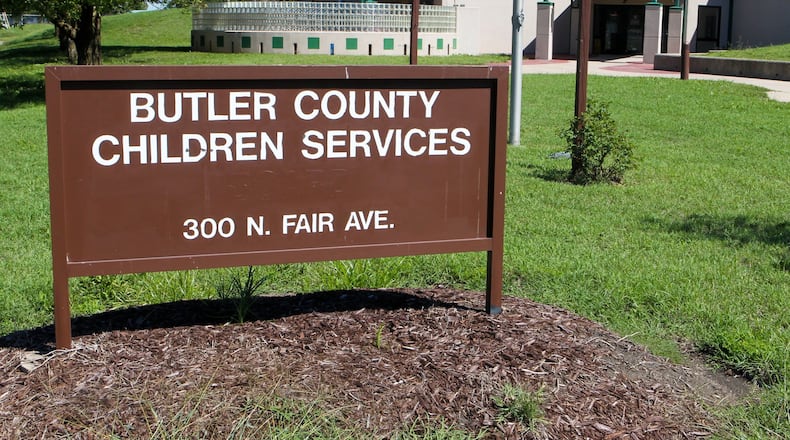Scott Britton, assistant director at the Public Children Services Association of Ohio, said Children Services agencies are still investigating reports of abuse and taking the required steps to protect kids, remotely and in person.
An aspect now that is troubling, he said, is whether all cases are being uncovered.
RELATED: Coronavirus: Dayton Convention Center could treat virus patients during surge
“Reports of abuse and neglect are down across the state largely because the mandated reporters that we rely on like teachers, clergy, doctors, therapists are not seeing the children as regularly as they were before the stay at home order was issued,” Britton said.
“We’re hearing from agencies saying they are at anywhere from two-thirds of their regular calls down to half their regular calls. That has implications. We suspect there is abuse going on because a child may be isolated at home with an abusive parent, a parent with substance abuse disorder, there might be a variety of challenges.”
Butler County Job and Family Services Executive Director Bill Morrison said 90 percent of his Children Services staff is working remotely with families and investigating abuse claims.
In terms of a potential rise in unreported incidents, teachers don’t have their eyes on students during summer break either. However, they normally get a surge in abuse reports before school lets out for the summer, Morrison said, so “the child will be on our radar in the summertime.” He said teachers had no warning they would be teaching remotely so they couldn’t alert Children Services to cases it should monitor.
“I don’t want to assume that there’s a lot of children being harmed that we’re not aware of,” Morrison said. “I don’t think that’s the case, I think most parents are doing the very best they can in managing this circumstance, but it certainly does leave some questions out there.”
BCCS in-custody numbers have been on a steady downward trajectory since last summer. The average number of kids in paid placements was 400 in 2019 and is 365 year-to-date. The monthly average for March was 327 compared to 341 and 331 in January and February respectively, but there are many variables that impact the numbers.
One of the reasons the county has been able to keep placement numbers and costs low is by contracting its Family Preservation Program out to Pittsburgh-based Pressley Ridge, which operates a facility in Hamilton. Social workers meet with families one to five times per week for intensive counseling and advice so children can safely stay in their homes instead of in the county’s custody.
Anna Robinson, manager of the Hamilton Pressley Ridge office, said it has been tough but not impossible continuing to provide services to their 37 client families. She said they are considered an essential service by the governor so they are continuing to make home visits and if there is a reason not to go in someone’s home, they are using Zoom or Telehealth.
She said the toughest thing about the pandemic is that families are home together. Some parents need help with the home schooling aspect and others just need activities to keep them occupied. She acknowledged families are fragile right now and offered some advice.
“The biggest thing is taking it day by day and really reaching out to those service providers that are working with the different families and being open and letting not only us but other people know when they need assistance or the day is rough,” Robinson said.
For families that can’t be kept together, Britton said available foster care placement options have also taken a hit during the pandemic. Many foster parents tend to be elderly and they are supposed to be cloistered now. There are also situations where a child has been exposed to COVID-19 and people aren’t willing to take them in.
“We just heard yesterday, the first case I’m aware of, an agency having to bring a child into their lobby and keep the child there overnight, staff providing 24-hour care for that child because they could not find a placement,” Britton said. “Because foster families are nervous about, particularly if they other foster kids in the home bringing in a child who may have been exposed.”
Morrison said Butler County is fortunate to partner with Hopes Closet in culling foster families.
“I think our foster parents as a group are younger than most foster parents,” Morrison said. “Because that’s kind of who Hope’s Closet tends to recruit, they do a lot of church-based recruiting and that kind of thing. Whereas a lot of foster care networks are made up of mainly people who are in their grand-parenting phase of their life. We have more people that are more in the parenting phase of their life.”
Britton said his organization has been working with juvenile court judges in an attempt to lessen the number of removals when possible. They are also working with private foster care networks and residential placement facilities to find quarantine solutions so they can safely take in new children.
“Everybody is really just stretched and trying to think out of the box and creatively,” Britton said.
About the Author
